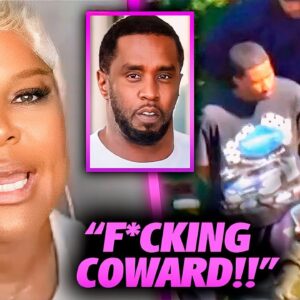Terrence Howard recently made headlines with his impassioned defense of his friend and colleague, Taraji P. Henson, amid reports of her alleged mistreatment in Hollywood. The actor took to social media to express his support for Henson, recounting her impact on his life and career, while also issuing a stern warning to media mogul Oprah Winfrey.

Reports surfaced suggesting that Henson had been blackballed in Hollywood after speaking out about pay inequality and mistreatment on the set of “The Color Purple.” According to sources, Oprah, along with producers of the film, allegedly planned to blacklist Henson due to her outspokenness, blaming her for the film’s perceived failure at the box office.
Howard’s public defense of Henson comes amidst longstanding rumors of tension between him and Oprah, allegedly stemming from Howard’s revelation of their past affair. Sources claim that Oprah retaliated by attempting to blacklist Howard, a move he now perceives as being repeated against Henson.

While Howard’s support for Henson is commendable, it also reignites discussions about his own controversial past, including allegations of domestic violence and tumultuous relationships. Howard’s history of legal troubles and public scandals adds a layer of complexity to his advocacy for Henson and his criticisms of Oprah.
Moreover, Howard’s willingness to speak out against powerful figures like Oprah and his support for fellow actors facing adversity reflect a sense of integrity and loyalty within the industry. However, his actions also raise questions about his motivations and the complexities of navigating Hollywood’s power dynamics.
The ongoing saga involving Howard, Henson, and Oprah underscores broader issues of representation, equality, and accountability within the entertainment industry. It shines a spotlight on the challenges faced by black actors and the importance of solidarity in the face of adversity.
As the story continues to unfold, with Howard standing firmly by Henson’s side, it prompts reflection on the role of privilege, influence, and responsibility in shaping the experiences of actors, particularly those from marginalized communities. Howard’s public statements serve as a reminder of the need for greater transparency, equity, and respect within Hollywood, as well as the enduring impact of personal and professional relationships in shaping the industry’s landscape.
News
News flash : Taylor swift is in angry mood as she said so many people want my relationship with Travis Kelce to be terminate and broken, if you a true fans of mine and you want my relationship to stand strong let me see you sending love emoji…
Ever since Taylor Swift appeared last September at a Kansas City football stadium, with a Chiefs jacket artfully shrugged off her shoulders, large swaths of the…
Jimmy Kimmel Jokes Travis Kelce Is ‘Still’ Taylor Swift’s ‘Broke Boyfriend’ Despite $34 Million Chiefs Contract
Travis Kelce may have a jaw-dropping new salary, but he’s still got a ways to go to impress Jimmy Kimmel. On the April 30 episode…
Wesley Snipes Exposes The Craziest Hollywood Rituals
Wesley Snipes: Challenging Hollywood’s Status Quo Wesley Snipes, once a dominant force in Hollywood, has found himself amidst controversies and challenges that have shaped his career trajectory….
Misa Hylton Goes OFF On Diddy For Sacrificing Their Son To Save Himself
Misa Hylton Takes Stand Against Diddy Amid Allegations of Sacrificing Son and Sex Trafficking Links Recent events have thrust Misa Hylton into the spotlight as she confronts…
Birdman Breaks His Silence & Admits He Was Victim Of Diddy?!
Explosive Allegations: Diddy Accused of Misconduct by Multiple Parties In a shocking turn of events, music mogul Diddy finds himself embroiled in a series of serious allegations…
J-Lo FINALLY Breaks Silence On How Diddy TRAUMATIZED Her
J-Lo Breaks Silence on Diddy’s Impact: An Insider’s Look In a recent interview, Jennifer Lopez, often known as J-Lo, opened up about her past relationship with Sean…
End of content
No more pages to load






